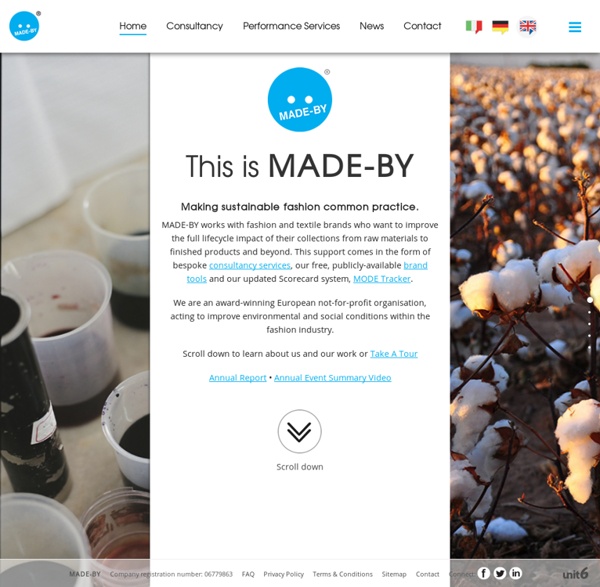



DutchSpirit Organic & Fair Clothing - Eco Fashion Clothes & Shop at hessnatur.com We are closing our US webshop. In order to concentrate on our business in continental Europe, we have decided to leave the US market. We deeply appreciate your loyalty and support. At hessnatur, our commitment to an ethical, sustainable and eco-friendly lifestyle is our core value. Thank you for welcoming us to the US, for being our valued customer and for standing with us to protect the planet and its people. Your Friends at hessnatur If you have any questions or suggestions, simply contact us. By email:customerservice@hess-natur.com Documents: Terms & ConditionsPrivacy
Workshop: Creating Sustainable Change but Maintaining ‘Fashion’ Alchemist Sustainable Fashion: 5 Eco-friendly fashion brands we're loving right now Hello fashionistas! Fall is nearly upon us, and I for one am in the midst of building up my new fall wordrobe (as I'm sure many of you are as well)! But while sorting through the clothing rack, how often do you check the label for what its made of? I'm sure by now most of you have heard the term "eco friendly", or "environmentally friendly" fashion. Here are some eco-friendly brands and clothing items we're loving right now! People Tree: Founded in 2001, People Tree was one of the first clothing brands to advocate eco-friendly fashion. Urban Renewal by Urban Outfitters: Urban Outfitter's "Urban Renewal" line take vintage pieces and materials and rework them into modern designs. Gypsy Rose: Gypsy Rose is a US-based clothing boutique that sells earth-friendly handmade clothing items. 100%NY: 100%NY offers sporty chic, contemporary designer sportswear made from eco-friendly fabrics. Are you an advocate of eco-friendly fashion?
Historic Futures The greatest component of the environmental impact of a product is often not its use, but its production. In some cases the global value chain can account for up to 80% of the total impact. While it is clear that this will vary significantly from one product to another, it seems logical that the process of making something can use more resources and affect more systems than using it. Take bread. Much work has been done to estimate the environmental impact of products, perhaps most significantly on the energy required throughout the product life-cycle. Anyone who has an electricity meter can attest to the inaccuracies of estimation by the periodic balancing bill they get to make the estimates more closely reflect real life. And what if we are interested in the effect of our purchases on other systems: water, people, forests, marine life, soil and so on (and so on)? It sounds like common sense, but in reality the majority of organisations are unable to do this.
Okimono Style with Heart | Ethical fashion for the eco-conscious consumer Is collecting accurate value chain data a 'wicked' problem? Dutch aWEARness Fashion Scarves and Shawls | Indigo Handloom Store - Indigo Handloom FASHIONmeGREEN - Where style goes green